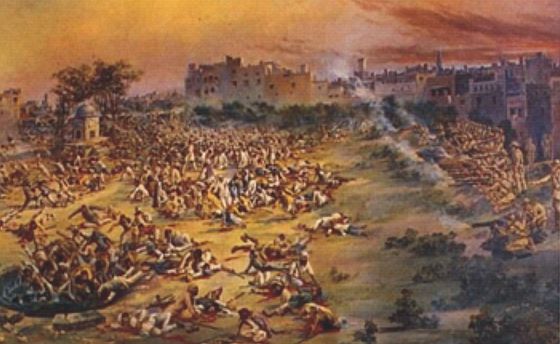![]() Robert Horvath, a specialist on Russian politics at La Trobe University in Melbourne, wrote the following op-ed in August 2008, at the outbreak of the Russo-Georgian War. It is as relevant now as it was then.
Robert Horvath, a specialist on Russian politics at La Trobe University in Melbourne, wrote the following op-ed in August 2008, at the outbreak of the Russo-Georgian War. It is as relevant now as it was then.
Horvath wrote: Perhaps the worst thing about the anti-American left is not its prejudices but its parochialism. Fixated upon the evils of US global hegemony, its publicists turn a blind eye to the imperialism of regimes opposed to that hegemony.
Consider this analysis by Guardian columnist Seumas Milne: “By any sensible reckoning, this is not a story of Russian aggression, but of US imperial expansion and ever tighter encirclement of Russia by a potentially hostile power.”
To deny that Russian imperialism is shaping the events unfolding in the Caucasus is to ignore the public pronouncements of Russian leaders and the climate of nationalist hysteria that permeates the Russian media. Within hours of his arrival in Vladikavkaz last week, Vladimir Putin boasted that Russia “for centuries” played a “positive, stabilising role (as) a guarantor of the security, progress and co-operation” in the Caucasus and “would remain so in the future”.
That confident affirmation of Russia’s imperial destiny is a tribute to the achievements of a decade of nationalist propaganda in the state-controlled media. No longer is public opinion agitated by the memory of Russia’s 19th-century conquest of the Caucasus, Stalin’s genocidal deportations, and the two brutal Chechen wars. As human rights activist Sergei Kovalev has lamented, the regime’s tribunes “have drummed the values of the imperial state into the social mind”.
This indoctrination was made possible by the subjugation of the mass media during Putin’s early years in power. As a result of the displacement of liberal journalists by “patriotic” ideologues, Russian television became a forum for the most improbable conspiracy theories, sneering contempt for the West, sycophantic adulation of Putin and the celebration of Russian military power. It also provided a platform for charismatic commentators such as Mikhail Leontev and Vladimir Solovev, vehement converts to the imperial idea.
The ascent of the new Russian imperialism is exemplified by the philosopher Aleksandr Dugin, who emerged in the radical nationalist underground of the late 1980s. Languishing at the margins of politics during the Yeltsin years, he adopted Eurasianism, an ideology formulated in the 1920s by Russian emigres and popularised in the late Soviet period by the historian Lev Gumilev.
For Eurasianists, Russia was a unique Slavic-Turkic civilisation of the steppe and the eternal enemy of decadent Europe. In Dugin’s reworking, Eurasianism became a justification for the resurrection of an empire on the ruins of the Soviet Union and for a struggle to the death against the Atlantic democracies. [Continue reading…]

